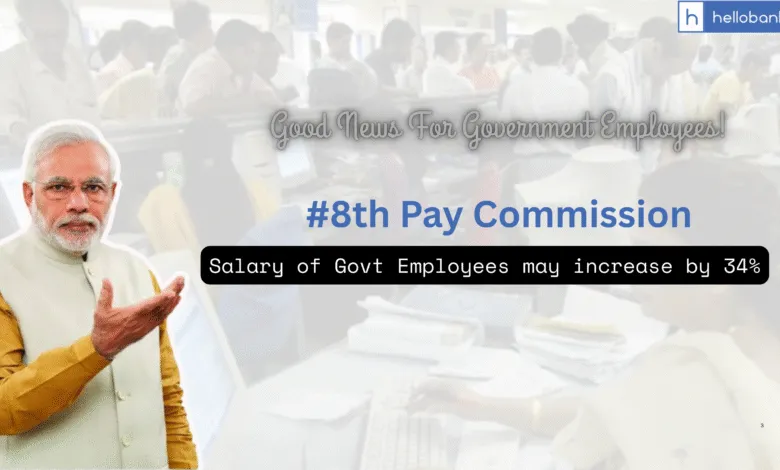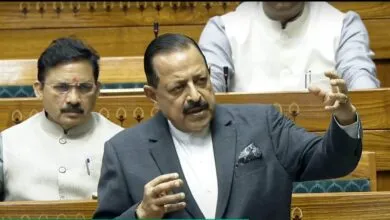8th Pay Commission: Salary of Govt Employees may increase by 34%

More than 11.2 million central government employees and pensioners are eagerly waiting for the 8th Pay Commission, hoping it will bring a significant increase in their salaries, pensions, and retirement benefits. But as of now, it seems they might have to wait longer than expected.
As per a report, the salary of Government Employees may increase by 34% if the 8th Pay Commission gets implemented. More details are given below.
While many assumed that the 8th Pay Commission would be implemented from January 2026—right after the 7th Pay Commission ends in December 2025—recent reports suggest that the actual implementation might happen sometime in FY 2026–27, that is between April 2026 and March 2027.
Why is the Implementation of 8th Pay Commission Getting Delayed?
Even though the government officially announced the formation of the 8th Pay Commission in January 2025, there hasn’t been much progress since then.
As of July 2025, the government has not appointed a chairman or any members, and the Terms of Reference (which define what the Commission needs to do) are still not finalized. This lack of administrative activity is the main reason for the delay.
To understand this better, let’s take a look at the past: The 7th Pay Commission was formed in February 2014. But it took almost two years before it was implemented in January 2016.
So if the same timeline is followed, the 8th Pay Commission might not be ready before early or mid-2027. Although the Commission was announced in January 2025, important steps like appointing the chairperson and members are still pending. This shows that the process is moving slowly.
The Union Budget 2025–26 has also not made any provision for the Pay Commission’s expenses. This further indicates that the government is not in a hurry to implement it.
What Does This Mean for Employees and Pensioners?
The Pay Commission reviews and updates salary structures every 10 years to make sure that government employees’ compensation keeps up with inflation and is somewhat in line with private-sector standards.
As part of this, the Dearness Allowance (DA) is increased twice a year—in January and July. But even these DA hikes are often paid with delays.
For example:
- The January 2025 DA hike from 53% to 55% was effective from Jan 1, but the payment was released months later.
- The July DA is usually paid in October, along with arrears for July, August, and September, just before the festive season.
If the 8th Pay Commission is delayed, employees might receive their revised salaries late, and arrears (pending payments) will accumulate over time. While arrears are usually paid later, delays can be frustrating—especially when inflation is rising and costs of living are high.
How Much Salary Hike is Expected in 8th Pay Commission?
According to Ambit Capital, the 8th Pay Commission could lead to a 30–34% increase in salaries and pensions. Here’s how that might look:
- If an employee’s basic salary is ₹50,000 now, it could go up significantly once the new structure is implemented.
- Fitment Factor (a number used to multiply the current basic salary to get the new one) may be set between 1.83 and 2.46.
- Under the 7th Pay Commission, the fitment factor was 2.57, which increased the minimum basic pay from ₹7,000 to ₹18,000.
But even then, after adjusting DA, the actual hike in 2016 was only around 14.3%. Ambit’s report also says this pay revision will cost the government ₹1.3 to ₹1.8 lakh crore. It could boost the economy too, as employees may spend more, benefiting industries like FMCG (consumer goods), banking, retail, and automobiles.
